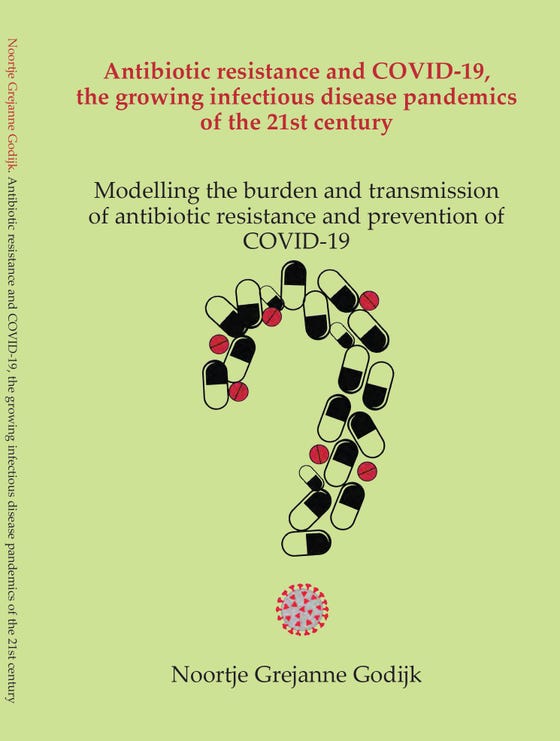Sep 1: Modelling the burden and transmission of antibiotic resistance and prevention of COVID-19
Sep 1: Modelling the burden and transmission of antibiotic resistance and prevention of COVID-19

Antibiotic resistant bacteria (ARB) and COVID-19 are both important infectious diseases of the 21st century. The burden and transmission of ARB and prevention of COVID-19 were thoroughly investigated with help of mathematical modelling in the PhD research by Noor Godijk (Research Program Epidemiology of Infectious Diseases, UMC Utrecht).
Mathematical models are useful in epidemiologic research, planning and evaluation of preventive and control programmes, clinical trials, measurement of health, cost-benefit analysis, diagnosis of patients and in maximizing effectiveness of operations aimed at attaining specified goals within existing resources. Modelling of infectious disease epidemiology has shown great potential in recent years in the research on the dynamics of antimicrobial resistance as well as during the COVID-19 pandemic.
ARB transmission
In her PhD research, scientist Noor Godijk summarized the available knowledge on ARB transmission pathways, She studied whether ARB increase the total number of infections or whether they replace infections with susceptible bacteria and explored a new method to estimate the ARB disease burden. She identified a knowledge gap between the frequency of exposure to ARB and the probability of ARB acquisition. Certain exposure events may be high-risk, but if exposure is infrequent, the contribution of a more frequent, low-risk exposure may be higher. In addition, Noor found that for Escherichia coli, replacement of susceptible infections with resistant infections is more likely than an increase in the total number of infections. This implies that only different characteristics of resistant E. coli, e.g. a higher mortality, can cause an increase of the disease burden, rather than an increasing number of infections.
Prevention of COVID-19
In addition, she investigated which measures are effective in inhibiting further spread of COVID-19. Self-initiated measures, such as hand washing, distancing and wearing of face masks can reduce infections by more than 50 percent and postpone the peak number of infected, if virus awareness is quickly raised.Godijk and colleagues also found that the spread of other infectious diseases is influenced by corona measures. For example, Dutch heterosexuals indicated that not being able to make an appointment with their general practitioner or the sexual health center was the main reason that they were unable to take a test for sexually transmitted diseases.
PhD defense
Noor Godijk (1995, Harderwijk) defended her PhD thesis on September 1, 2022 at Utrecht University. The title of her thesis is “Antibiotic resistance and COVID-19, the growing infectious disease pandemics of the 21st century”. Supervisor was prof. dr. Marc Bonten and co-supervisor was dr. Martin Bootsma (both Research Program Epidemiology of infectious Diseases, UMC Utrecht). Noor works as a senior researcher at the GGD Noord-Limburg, the Netherlands.


